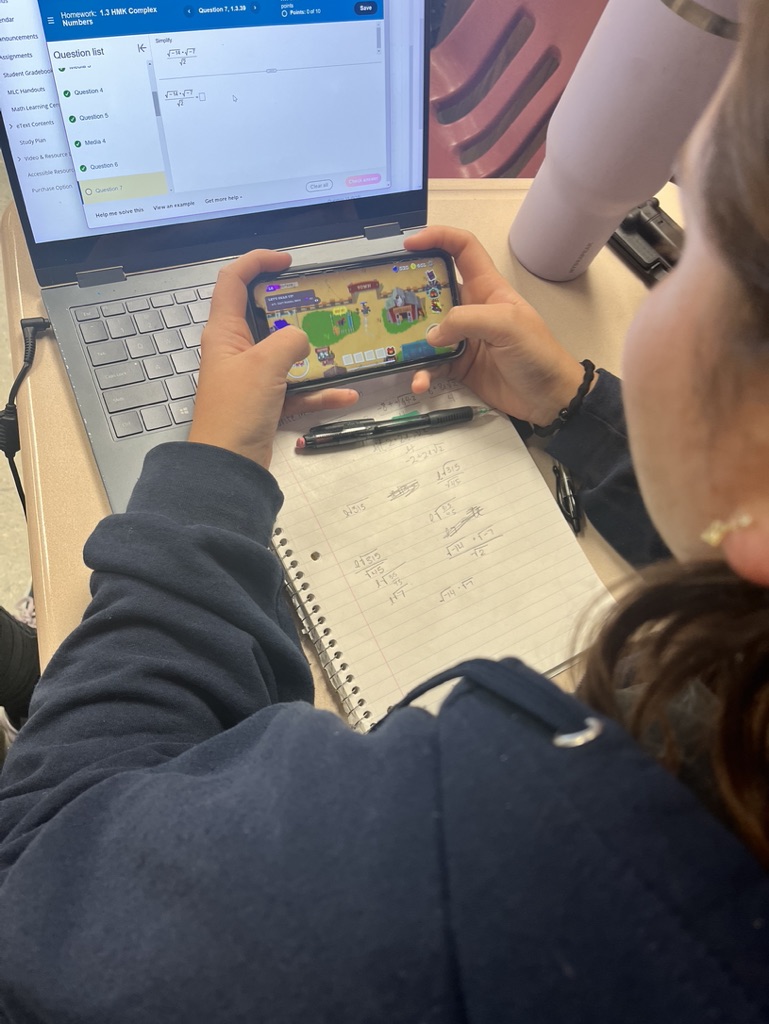CORPUS CHRISTI, TEXAS—One of the biggest debates facing today’s schools came with the rise in technology: should cell phones be allowed in schools and what benefits and drawbacks do they present to students?
One benefit of cell phones in schools is the easy access to technology they provide. There’s no need to pull out a Chromebook to play Kahoot when students can just pull out their phones. If a student in a classroom without calculators needs to do quick math, their phone is an easy alternative. In simpler terms, the cell phone is a benefit in school in exactly the way it was meant to be: an easy tool for efficiency and independence.
If there’s an emergency in school, a student may have no choice but to use their cell phone. The device can also be used as a mode of identification in the worst-case scenario.
Students can also use educational apps, access fun learning opportunities, and download and read ebooks. Phones provide a necessary tool for some students for easy access to information and methods of communication
Speaking of communication, cell phones provide easier communication in situations where communication is lacking (such as high school).
Another important use of cell phones, at least on our campus, is the use of cell phones to take photos. Amy Brandewie’s photojournalism class’ only means of taking their pictures for assignments and projects is through their cell phones, as yearbook (and sometimes newspaper) are the only ones allowed to check out cameras due to availability.
Photojournalism students Anthony Mimms and Allison Conde agreed with having phones in schools, saying “Phones are good just in case you need to call your parents. If they run out of calculators or Chromebooks you can use your phone. If you’re stressed out and need music to work, you can use your phone. Especially for this class, we need our phones to take pictures. We can use them to make school memories.”
While all of these benefits of having phones in school are valid and make sense, there are drawbacks involved that make the decision to allow unbridled access to personal devices a decision that needs a lot of thought and consideration.
One of the biggest reasons students should worry about having phones in schools would be the element of distraction provided by certain apps, especially those in a scrolling format such as YouTube, TikTok and Instagram. While these apps are fun on your own time, they can be detrimental to your study life if all you do is scroll, which is a large possibility.
Cell phones also pose a high risk for cheating, leading to many teachers having “Cell Wall”s, “Cell Phone Hotel”s and other things of the sort. Apps like Mathway and Symbolab can be a great resource or a great harm to students and they often get used for both assistance and academic dishonesty, causing difficulty in just altogether banning the apps.
Photojournalism student Amari Matthews admitted to some issues that could arise from having phones in schools, saying “It’s a distraction and it makes you kinda worried more about outside things instead of school, and when you get notifications it can make you kind of crazy and distract you from learning in class.”
Altogether, cell phones pose both a threat and benefit to students and teachers in schools and it should ultimately be up to the teachers whether or not they’re allowed in their classroom and under what circumstances they can be visible and/or used.















